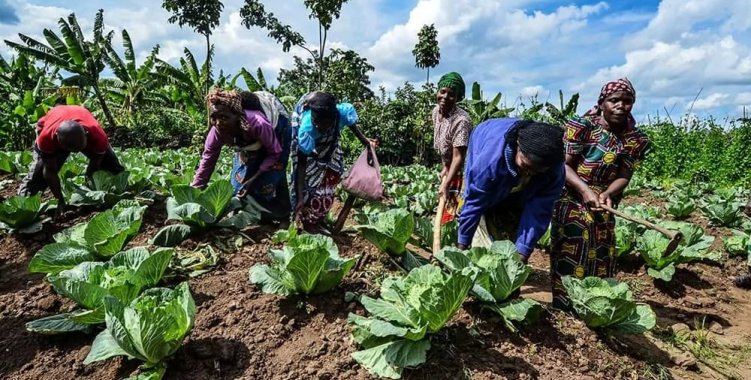In a statement, to which VerAngola had access, the Government explains that this obligation loses effect in cases where the location does not have sufficient production to meet demand.
"The products that make up school meals must be purchased primarily locally, from farmers and family farming cooperatives, except in cases where the location does not produce on a sufficient scale to meet demand," the note says.
The objectives of this measure are to stimulate agricultural production and local sustainability, as well as to increase the supply of natural and healthy foods in educational establishments.
"This obligation aims to stimulate agricultural production and local sustainability, as well as to expand the supply of natural and healthy foods in schools, according to Presidential Decree No. 83/25 of April 15, which approves the National School Feeding Program (PNAE) 2025-2027", points out the Executive.
This articulation between family farming and the PNAE, says the statement, "serves to enhance changes in the local food system, creating an impact on improving the quality of life of farmers and communities and offering healthy meals to students."
To ensure the effective implementation of this measure, the provincial secretariats of Agriculture, together with the municipal secretariats of the same sector, "must present to the Provincial Council of School Feeding the mapping of farmers and cooperatives of family farmers, as well as the agricultural potential and crops of each municipality, to direct those responsible for implementing the program on the locations where the acquisitions of products should be made".
"In this sense, the Presidential Decree establishes that, at least, 30 percent of the financial resources allocated to the PNAE must be applied to the purchase of products directly from local farmers and family cooperatives, to reinforce the commitment to sustainable development", says the note.
According to the Government, school meals include a snack, preferably made from local products, and a solid meal, prepared in school or community kitchens or by companies contracted by municipal administrations.
"Food made available within education and teaching establishments, through services provided by canteens, dining rooms, kitchens or others, must comply with nutritional, hygiene and safety requirements, according to legislation, and are subject to approval and hygienic-sanitary control by those responsible for the Education and Health sectors at municipal level, and by the competent authorities at provincial level of the National School Feeding Program", says the statement.
According to the note, the PNAE aims to "universalize the provision of school meals for children enrolled in early childhood education and primary education, in public schools, as well as to strengthen essential policies for the promotion of education, social protection, health, gender equity and food and nutritional security for the integral development of children at school age".
According to the presidential decree, this program appears in the wake of the implementation of the School Meals Program (PME), "approved by Presidential Decree No. 138/13, of September 24, and constitutes a guiding instrument for public policy measures in the field of promoting food and nutrition in the school environment".
"The objective of the PNAE is also to contribute to stimulating children's ability to acquire knowledge, reducing the prevalence of malnutrition and risk factors associated with chronic non-communicable diseases, and strengthening protective factors related to healthy eating," the statement also says.
The Government also informs that the implementation of this national program is the "responsibility of the Ministry of Education, under the supervision of the Minister of State for the Social Area, through the quarterly presentation of a balance report, at the headquarters of the Commission for Social Policy", with the Ministries of Health, Agriculture and Forestry, Finance, Social Action, Family and Promotion of Women and Industry and Commerce also being involved.







